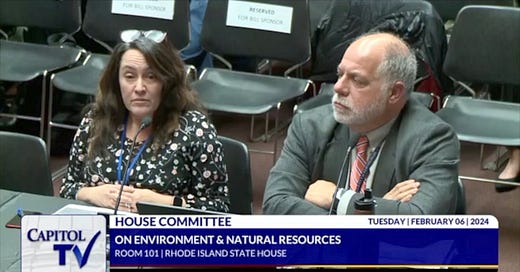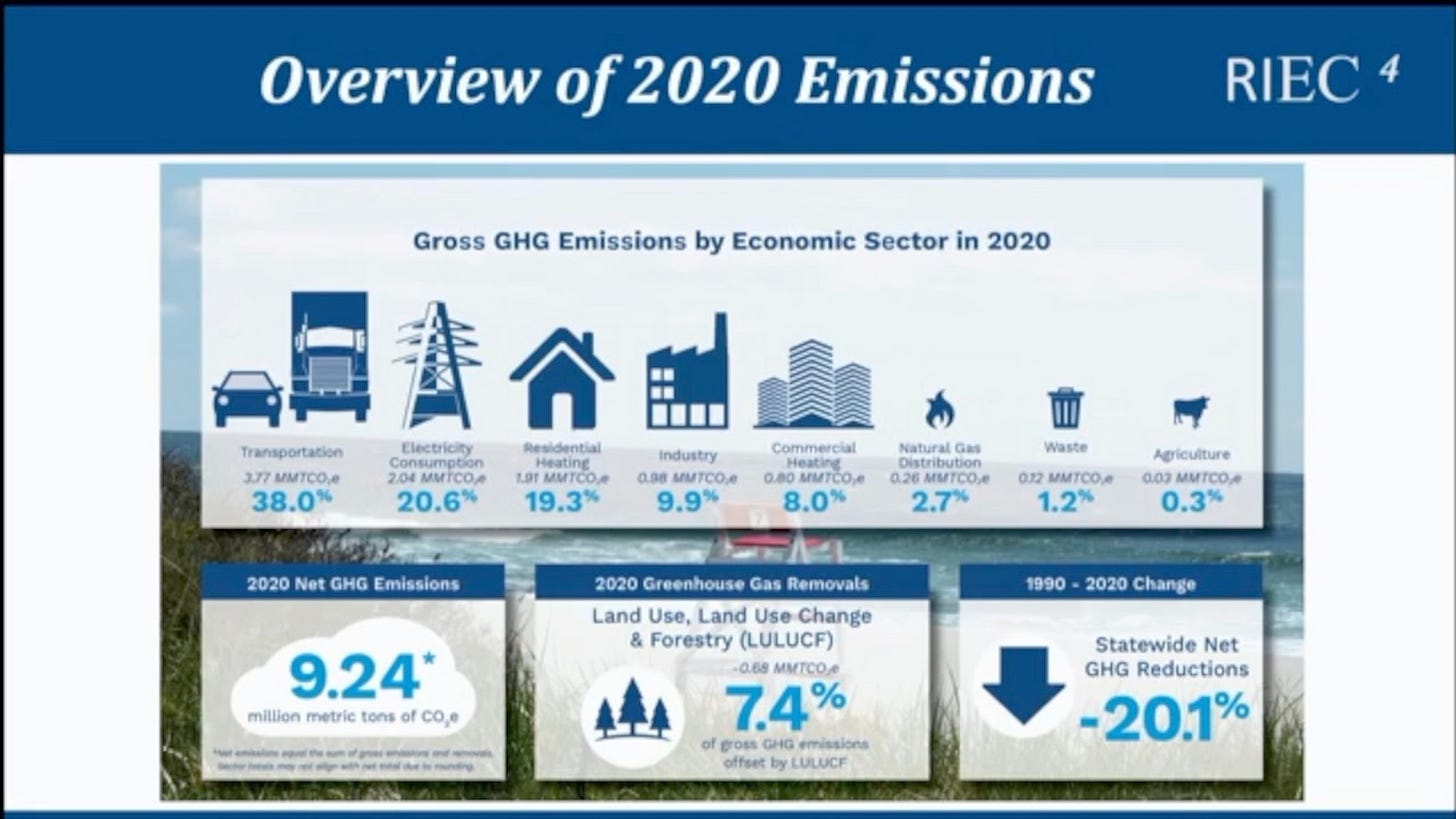Public transportation does not seem a priority for meeting our Act on Climate greenhouse emission reduction goals
Speaking before the House Committee on the Environment, DEM's Terrance Gray and OER's Karen Bradbury never mentioned public transportation.
The House Committee on the Environment heard from Terrance Gray, Executive Director of the Rhode Island Department of Environmental Management, and Karen Bradbury, Administrator of Energy Programs at the Rhode Island Office of Energy Resources about the state’s efforts to meet the state’s Act on Climate mandated greenhouse gases emission reductions.
“In Rhode Island, the transportation sector is our biggest contributor,” said Director Gray. “That's 38% of our greenhouse gas emissions. Most of that is related to passenger vehicles and light-duty trucks...”
“As the director mentioned, the federal government has made a historic investment in funding to address and mitigate climate change and Rhode Island is receiving its fair share of this funding. OER and DEM have a lot of work ahead of us,” said Administrator Bradbury. “Director Gray mentioned that the transportation sector is the biggest contributor to greenhouse gas emissions in the State of Rhode Island and, actually, nationwide.
“OER has some programs to help reduce emissions from that sector. Back in 2022, our E-bike and EV rebate programs were launched and they have been very successful. You can see the numbers in the handout. Now that we have the January rebate information [we know that] demand is growing. We don't see any decrease in the demand for those rebate programs. We've also seen an increase in the registrations for zero-emission vehicles.
“Consumers want to do their part in reducing emissions in the transportation sector. The infrastructure bill provides Rhode Island with roughly $23 million to build out our electric vehicle charging infrastructure. We are about to launch construction for phase one of the National Electrical Electric Vehicle Infrastructure program.
“We have been instructed by DOT (Rhode Island Department of Transportation) and DOE (Rhode Island Department of Education) to install additional chargers along Route 95, which is our “alternative fuel corridor.” Work is going to begin at the Ashaway Park and Ride on Route 117. We think mid-February will be when construction will kick off, and then we will launch phase two, which is going to focus on community infrastructure. There are some parameters. The infrastructure where it's placed will have to have 24/7 public access, but we will be in touch with communities as we move forward on that plan.”
Never mentioned during the presentation by Director Gray or Administrator Bradbury was the possibility of adequately funding and expanding the Rhode Island Public Transportation Administration (RIPTA) which is facing financial shortfalls and a driver’s shortage. Instead, the focus appears to be on electric vehicles. [Ironically the Ashaway Park and Ride is a place people can easily catch a RIPTA bus.)
More glaring, not one member of the House Committee asked about RIPTA and instead focused most of their questions on beach erosion.
You can watch the video of the presentation here:
Environmental Justice
More promising was Director Gray’s emphasis on environmental justice.
“There are two themes that you'll see through all [our] grant applications if you dig into them. One is workforce development,” said Director Gray. “The other piece is climate justice and making sure all of our communities can be engaged in and benefit from the programs that we're talking about. That's a theme that runs through everything we're doing right now. Both of those are important focus areas. Equity and workforce development are themes that run through everything we're doing.
“Both OER and DEM have hired Climate Justice specialists. You may have heard from them in your travels. We've also done environmental justice training for all the members of the EC4, the advisory board, and the STAB. The Climate Justice hours are the events that the two climate justice leads lead to get that dialogue going in a lot of ways.”
One aspect of climate justice not mentioned? The importance of properly funding public transportation.






Big disappointment that the value of a good public transport system to achieve climate goals is not recognized. A good public system with elecrric buses, would reduce the use of passenger cars and reduce our carbon footprint. Very shortsighted, but business as usual for public officials in RI.
"Where there is no vision, the people perish ..." I've said that about DEM for years. Traffic is responsible for about one third of the greenhouse gas emissions. It's extremely unlikely that this problem can be solved without a radical change to public transportation.